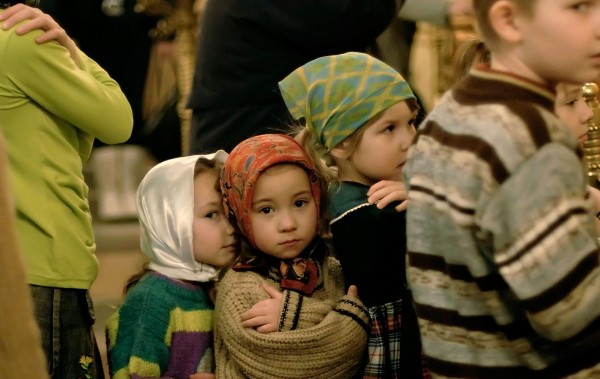I think we can all agree that Jesus had a special place in his heart for children. Children, he tells us, are more open than most to the awareness of the Presence, power and authority of God in the universe. He adds that if we adults want to possess this awareness, we too must make a conscious decision to become like children.
But what does it mean to “become like children”? Our conventional understanding of children is that they lack the jaded and cynical qualities of adults. At the same time, we believe that children hold the key to some secret knowledge that we lose as we grow older. In some ways, we think that children are wiser than adults.
So we relegate Jesus’ words concerning children and the kingdom of God to the realm of sentimental personal piety; to the Christmas or Easter pageant when we sigh and recall a time when faith was a simpler, less complicated affair; to moments when we wistfully remark that children seem to have something that we adults have lost.
But let’s pause and rewind here a moment. Is this really what Jesus meant when he spoke about children? From a scriptural point of view, children are indeed innocent (Phi. 2:15), but their innocence is a result of the lack of wisdom, understanding, knowledge. “When I was a child,” St. Paul says, “I spoke like a child, I thought like a child, I reasoned like a child; when I became a man, I gave up childish ways.” (1 Cor. 13:11)
From the scriptural point of view, children do not have more knowledge than adults; they have less. And this is crucial, because when Jesus speaks of children, it is precisely their weakness and immaturity that He is referring to. Because only if we adults take on the child’s condition of fragility and “poverty of spirit,” can we finally come to depend utterly on God and receive the gift He has to give.
As a pastor, it is my experience that church is the one place where adults can truly become children in the scriptural sense. In the relative safety of a church community, people often let their guard down and uncover all their frailties and foibles (at least unconsciously). Like children, they bring everything inside out, with no holds barred. This can be difficult to deal with, but it is also an important blessing. After all, shouldn’t Church be a place where we can finally drop our facades and stand before God as we truly are: weak, frightened, insecure children longing for the embrace of our heavenly Father?
That’s why the physical presence of children in the midst of our worship is so vital. Those distracting little people remind us on the outside of who we are on the inside. If you doubt me, let me ask you: during those excruciatingly long sermons, have you ever glanced at a fidgeting child nearby and thought: I know how you feel? Have you ever wanted to turn to an adult close by and ask, “When is it going to be over?”
I’m not saying that we have to “indulge the child within.” Rather, worshipping with our children reminds that we and they are really not so different from one another. As adults, we have learned to put a better face on it, but our thoughts bounce around in the jungle gym of our minds no less than their bodies on the floors, walls and pews of the church building. And just as they need the love, guidance and discipline of their parents and elders, we adults are no less in need of God’s mercy to steady, guide and correct us.
We are no less dependent on Him than our children are dependent on us. And for that we can be grateful, because it is the difference between needing Him or declaring ourselves self-sufficient without Him. As a well-known theologian, Fr. Alexander Schmemann, once prayed, “Thank You, O Lord, for our families: husbands, wives and especially children, who teach us how to celebrate Your holy Name in joy, movement and holy noise.”




















